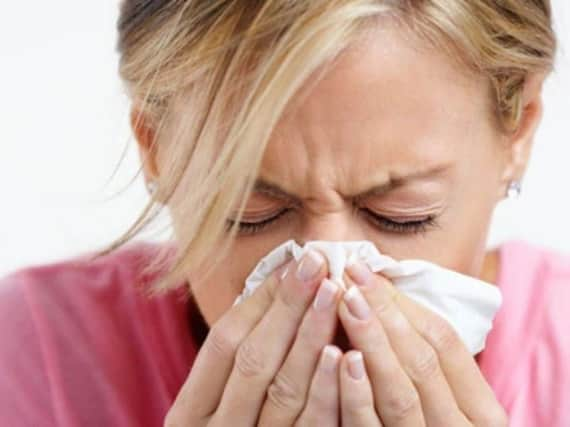This is how you know if you've got Australian flu and how to protect yourself


The dangerous illness has been dubbed Aussie flu due it being the same strain that caused major problems across Australia.
Public Health England (PHE) has issued numerous warnings that this winter could see the highest cases for flu in years with a growing number of cases reported over the last two weeks.
Advertisement
Hide AdAdvertisement
Hide AdNHS figures have revealed that 1,078 people have been admitted to hospital with flu since October across 19 trusts.
Of these people, 252 were diagnosed with 'Aussie flu'.
The strain of the disease has affected up to 170,000 people in Australia - more than two-and-a-half times last year's total - with over 300 reported to have died.
Duncan Selbie, chief executive of PHE said: "This is the busiest time of the year for the NHS and, as expected, flu levels are increasing.
"Our data shows that more people are visiting GPs with flu symptoms and we are seeing more people admitted to hospitals with the flu.
Advertisement
Hide AdAdvertisement
Hide Ad"The vaccine remains the best defence we have against the spread of flu and the two most important things people can do to help are to get vaccinated and to spread the word and encourage others to do so."
Flu causes more severe infections in young children and the elderly.
While most people will recover in a week without any specific treatment, more vulnerable people including the very old, young and those with pre-existing health conditions, it can be deadky,
Experts have still advised people to get the flu jab with this year's designed to protect against H3N2 as well as other strains.
Advertisement
Hide AdAdvertisement
Hide AdThe flu jab is offered free to adults at risk, over 65's, pregnant women and children at risk aged six months to two-yeas-old.
A flu nasal spray is also available to two and three-year-olds and some children at primary school.
People should usually recover from normal flu within a week so if the symptoms persist longer than seven days it could be a sign of something more serious.
If you develop sudden chest pain, have trouble breathing or start coughing blood then you should call 999 or head to A&E.
Advertisement
Hide AdAdvertisement
Hide AdTo stop the spread of of flu, people are advised to wash their hands with warm water and soap, use tissues to trap germs when you sneeze and bin the used tissues as quickly as possible.
The symptoms can include:
• fever (temperature above 38C)
• aches
• tiredness or exhaustion
• dry, chesty cough
• sore throat
• headache
• loss of appetite
• tummy pain or diarrhoea
• nausea and being sick